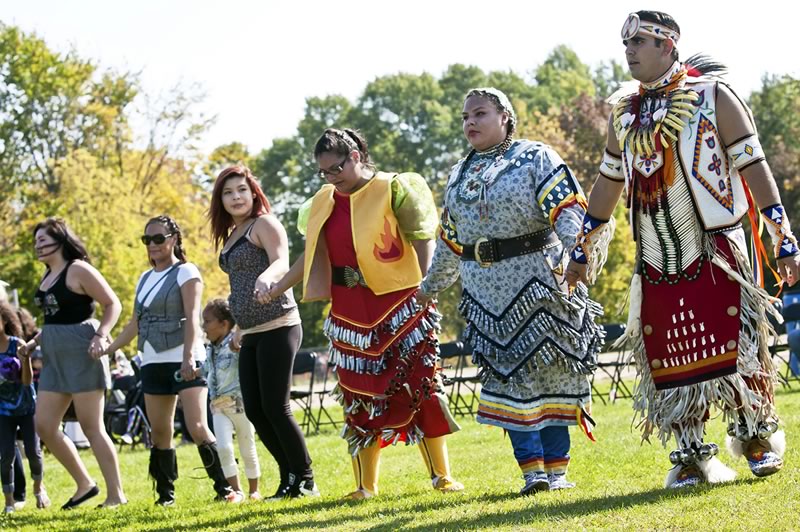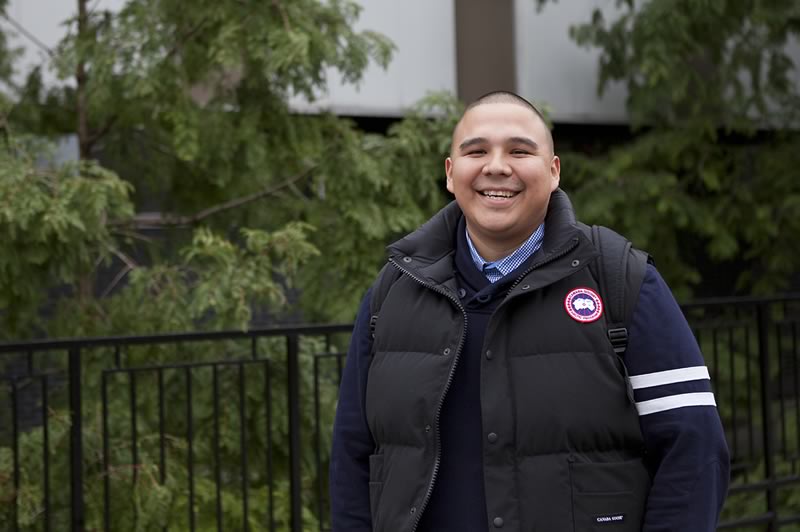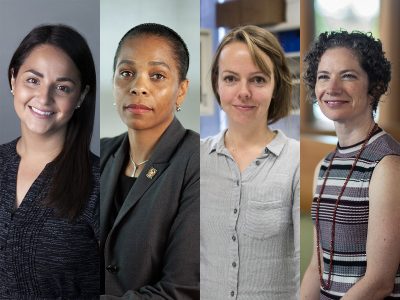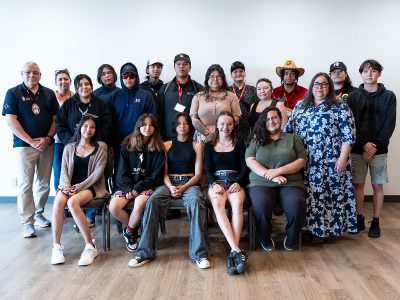By Michelle Zilio
Carleton University’s bid to become a noted centre of Aboriginal learning is getting a boost with two new Indigenous graduate programs and a focus on providing more services and events to ensure that students feel at home.
Starting in summer 2015, the School of Public Policy and Administration will begin offering a concentration in Indigenous Policy and Administration (IPA) as part of its existing MA in Public Administration (MAPA), as well as a graduate diploma in IPA. The school is currently in the process of recruiting students.
The IPA programs will provide people with the tools, capacity and knowledge to bridge First Nations, Métis and Inuit world views with non-Indigenous world views in their policy and administration work. Students will also obtain valuable skills such as financial management, community development, leadership and organizational design.
Rodney Nelson, a Carleton professor and co-chair of the university’s Aboriginal Education Council, says the programs fill a skills gap in Aboriginal communities.
“This expertise in our communities is extremely needed. So building capacity in our communities in this area of public administration is just absolutely critical.”
There’s a wide range of possible candidates for the programs, says Nelson, from band administration and governance managers to Canadian government officials working in Aboriginal policy.

The IPA programs were developed in response to a call from the Ontario government for a university to develop an Indigenous public policy program. Carleton submitted a proposal and was awarded support.
The university hired Tracy Coates, a lawyer who specializes in cross-cultural strategies, to collect input from Indigenous communities and stakeholders on design and curriculum. After seven months of meetings with 170 Indigenous and non-Indigenous individuals and organizations across the country, Coates, who is Mohawk, says the IPA programs show great promise for Aboriginal communities.
“The IPA programs at Carleton have the potential to educate a new generation of policy-makers and administrators who can serve as bridges to create fundamental change for FNMI (First Nations, Métis and Inuit) communities, both urban and remote,” says Coates.
The MAPA with an IPA concentration is a 15-course program that can be completed over four full-time terms or through part-time study, while the IPA diploma will only be offered on a part-time basis, requiring students to complete six courses. Both programs will be offered through a combination of online courses and an intensive two-week on-campus course in the summer.
“It’s accessible and that’s what’s really key, because a lot of people can’t just leave the community and go off and live in the city,” says Nelson.
For Annie Miller, an Aboriginal student helping to build collaboration between Carleton’s Summer Institute and the IPA programs, Carleton is a leader among Canadian universities when it comes to making Aboriginal students feel at home.
“It just seems like there’s so much going on in the Indigenous community at Carleton and like it really is a priority for the school, which is really good to see,” says Miller, a fourth-year Social Work student.
Aboriginal Cultural Liaison Officer Naomi Sarazin, who was once a Carleton student, says she is impressed by improvements in programs and services.
“The progress that has been made from when I was a student to what we’re doing now just makes me feel really proud to be part of the changes and the moving forward,” says Sarazin.
Carleton’s programs and services provide Aboriginal people with the ability to obtain a post-secondary education in a comfortable setting – something Nelson says is important for the community.
“I think what’s beautiful is that people come here and they see the powwows and tipi up,” says Nelson. “It’s familiar. It’s safe.”
Carleton has a long history of providing support for Aboriginal students, including the Centre for Aboriginal Culture and Education which is more than two decades old. For more than 10 years, the Aboriginal Enriched Support Program has been providing personal and accessible help with application processes, course registration, program selection and academic career planning. A network of instructors, academic subject facilitators, peer mentors, writing and study skills coaches, and program co-ordinators provide a network to help students succeed.
As well, the Centre for Indigenous Research, Culture, Language and Education has been striving to facilitate research and delivery of linguistic and cultural materials of the First Peoples for more than 20 years.
But Aboriginal endeavours have become much more embedded in the fabric of the university in the last few years. Supporting Aboriginal communities and positioning Carleton as a university of choice for Aboriginal students is a goal of the university’s Strategic Integrated Plan released last year. The plan calls for more programs that meet the needs and interests of Aboriginal students, increasing the number of Aboriginal faculty, creating more partnerships with Aboriginal communities, and undertaking initiatives that enhance the understanding of Indigenous knowledge and cultures.
To that end, Carleton’s Aboriginal Education Council is working on recommendations for the university’s executive to guide further development.
Carleton’s new Aboriginal Centre, Ojigkwanong, which means morning star in Algonquin, opened Oct. 21, 2013 after an eight-month project. The centre, designed by renowned Canadian architect Douglas Cardinal with Aboriginal cultures and traditions in mind, is a gathering place for Aboriginal and non-Aboriginal students alike.
Located in Paterson Hall, the centre looks onto a widely travelled section of campus. The new 1,850-square-foot space features a circularity of design, a common theme among Aboriginal communities. The largest circle is a gathering space that is used for social, cultural and ceremonial events. A set of four smaller circular structures provide a computer lab, as well as work and study spaces for students. A kitchen is also included in the design to facilitate food sharing. The centre is a hub for more than 500 Aboriginal students, faculty and professional services staff, as well as Elders and non-Aboriginal members of the Carleton community.

In June 2011, Carleton officially adopted an Aboriginal Co-ordinated Strategy, which recognizes the historical and contemporary contributions of First Nations, Inuit and Métis peoples to the development of Canada and aims to incorporate them into the life of the university and build on them moving forward.
In June 2010, Carleton approved the Academic Plan, which included an Aboriginal Academic Initiative and the commitment to take a leadership role in Aboriginal teaching and research.
Carleton is dedicated to simultaneously recognizing the history of First Nations, Inuit, and Métis in Canada, as well as the contemporary contributions and realities of Aboriginal peoples. As part of its dedication to addressing real-world issues, Carleton commits to working with Aboriginal peoples, communities and nations in the modern day.
Applications for the MAPA with an IPA concentration are being accepted until Feb. 1, 2015, while applications for the IPA graduate diploma will close Jan. 15, 2015. More information about the programs can be found at http://carleton.ca/sppa/ipa.
Friday, January 9, 2015 in Faculty of Public and Global Affairs, New/Unique Programs
Share: Twitter, Facebook



